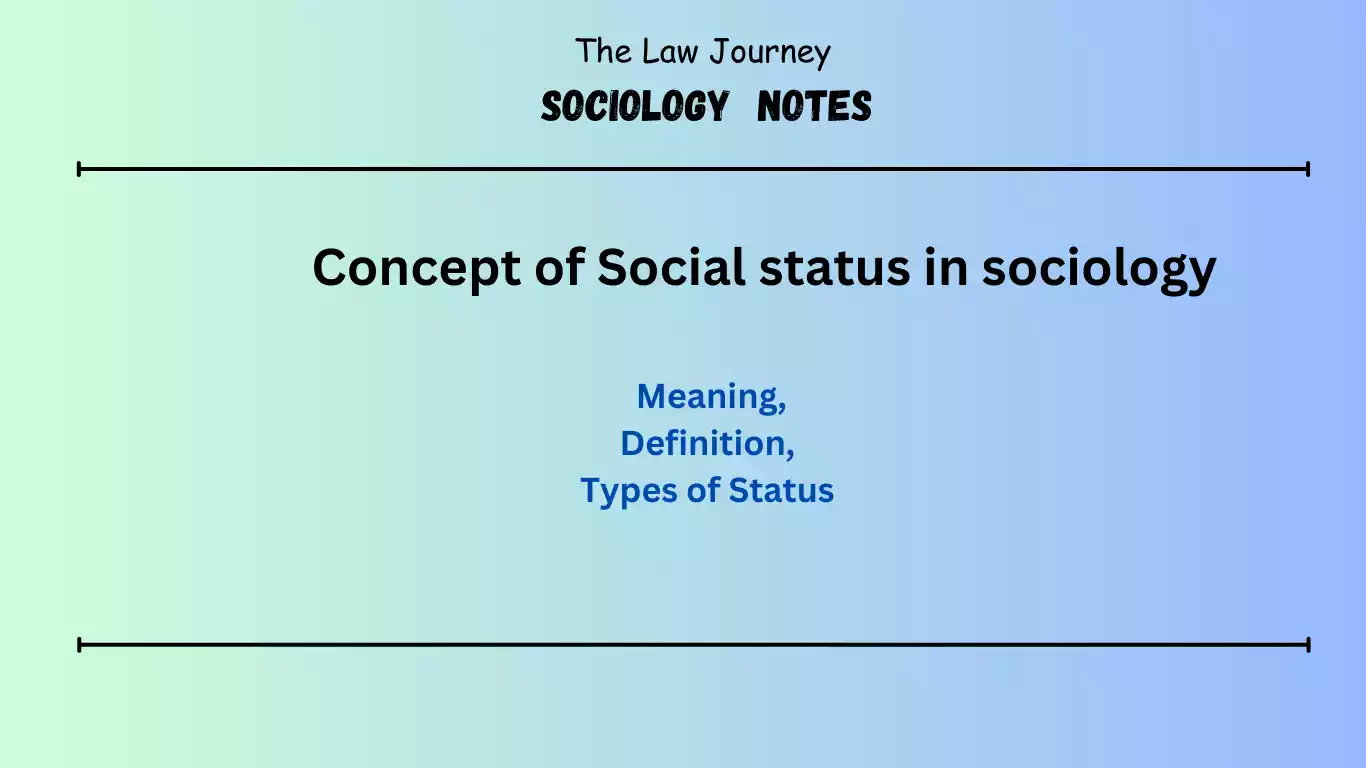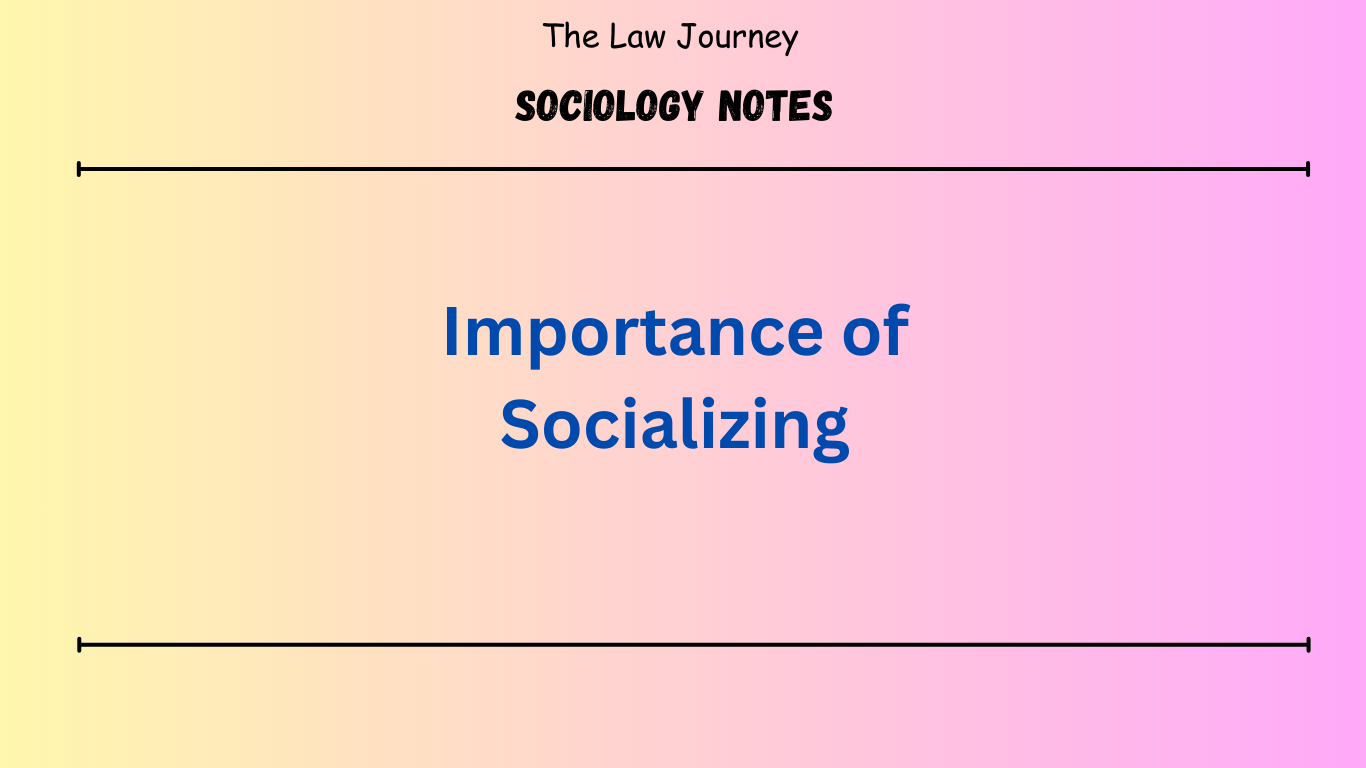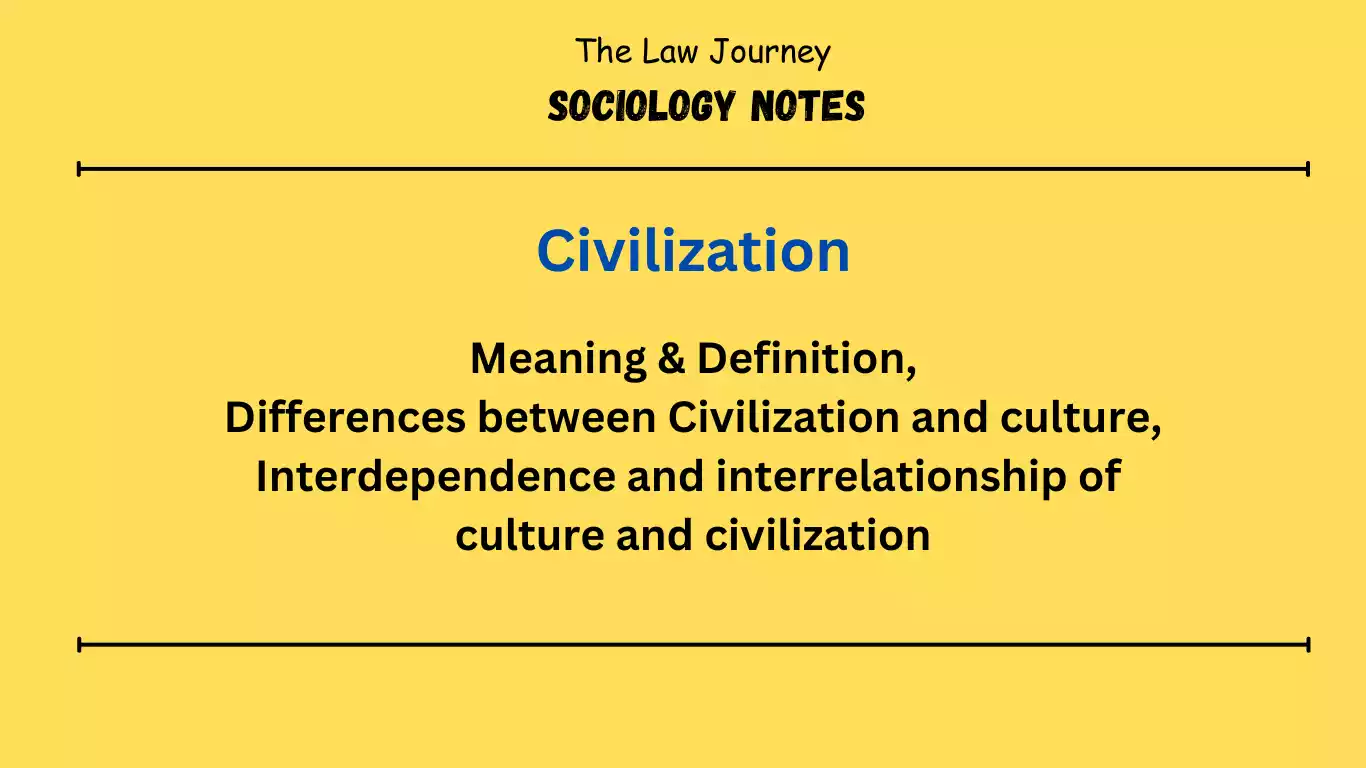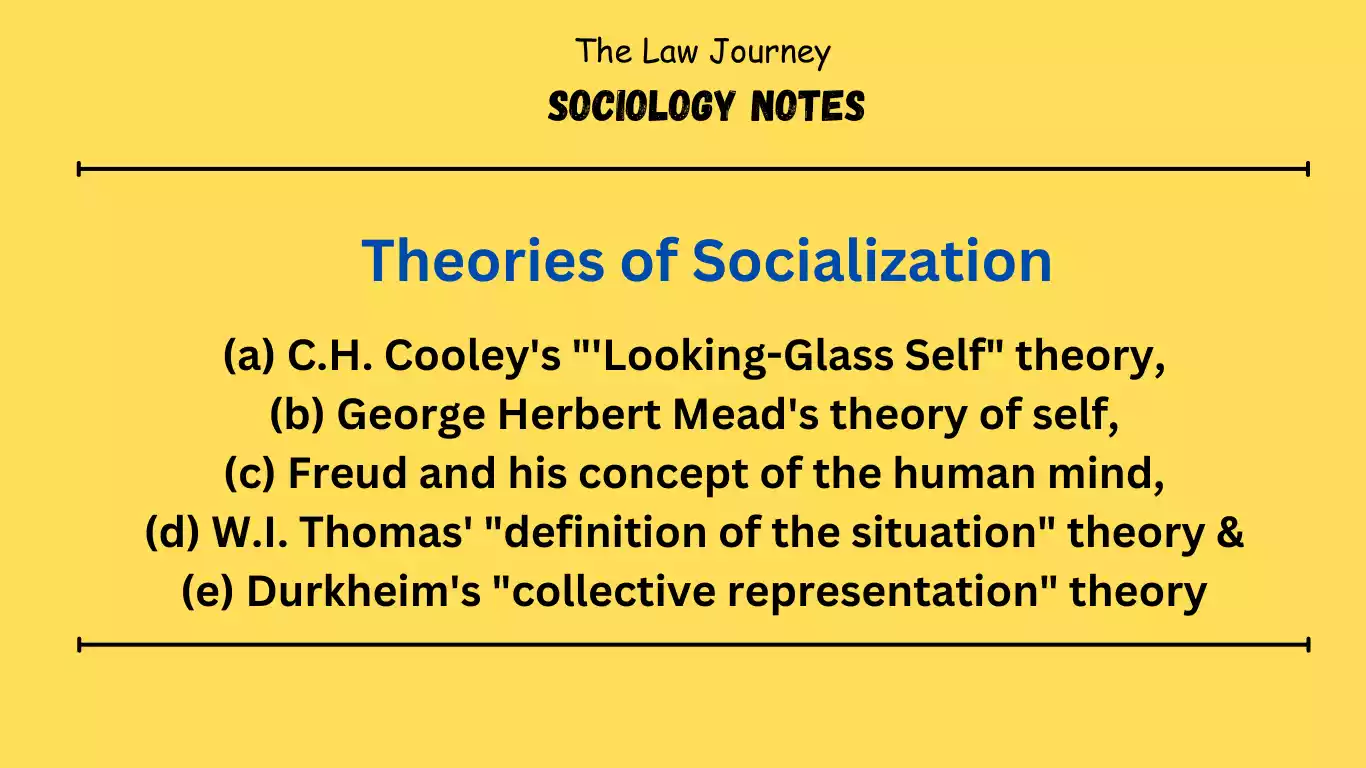Social status – Society is understood as a network of social interactions and interconnection. We cannot expect everyone to respond to stimuli in the same way in every interaction situation. Because everyone has their own identity, which already exists before entering a social situation.
Example: A husband expects a sexual response from his wife, but no other man has the right to expect such a response from his wife. Similarly, patients expect doctors to treat their illnesses, and students expect teachers to clear their doubts during class. Therefore, everyone participates in social situations with an identity. This identity refers to his position or status.
Definition of Social status
- Ralph Linton says that “status is the place in a particular system, which a certain individual occupies at a particular time”.
- Robert Bierstedt is of the opinion that “A status is simply a position in society or in a group….the status is the position afforded by group affiliation, group membership, or group organisation. It is set’ in the structure of the group or of the society before a given individual comes along to occupy it”
- According to Duncan Mitchell, social status refers to “the position occupied by a person, family, or kinship group in a social system relative to others. This determines rights, duties and other behaviours, including the nature and extent of the relationships with persons of other statuses’.
- For Morris Ginsberg “A status is a position in a social group or grouping, a relation to other positions held by other individuals in the group or grouping”.
- As Kingsley Davis said, a person’s identity in a social situation reveals their status.
However, certain external symbols do not necessarily help identify one’s position in society. Clothing style is also one of the indicators. Soldiers, military personnel, nurses, doctors, lawyers, police officers, religious missionaries, and priests wear different clothes. You can tell their status by looking at their clothes. The various badges worn by police and military personnel further indicate their status. The gender status of men and women can be determined based on the clothes they wear. In some societies, married and unmarried people, old and young people, merchants and craftsmen wear different costumes. This type of identification has its limitations, as some unauthorized persons may wear certain types of costumes for fun, fashion, or fraud.
Each status has its own rights, duties and obligations
The nature of these rights and obligations is determined by the society’s normative system. Rights are legitimate expectations that you, as a holder of one position, can have regarding the behavior of someone in another position. From someone else’s point of view, the right is just an obligation, for example, it is the employer’s right to expect a certain behavior from its employees, and it is the employee’s duty to perform the desired behavior. Similarly, it is an employee’s right and obligation to expect some form of compensation from his employer for his work. However, it is the employer’s duty to compensate employees. Therefore, “rights” and “duties” are just different definitions of the same relationship.
Social status is defined by norms
These norms vary depending on the person, situation, and position, even when they are assumed to be the same for everyone. For example, it is assumed that norms such as Be honest” andBe honest” are common to everyone. However, the reality is that doctors are not always able to tell patients the truth about their medical conditions. Similarly, businessmen cannot always work with integrity. Therefore, norms are always related to the situation. Which norms apply in a particular case depends on the relationship between the status of the people interacting and the situation in which they interact.
A person can have multiple statuses. Since society can be understood as a network of statuses, it is natural that there are many groups with many statuses in any society. Each person has many such statuses. His status depends on the type of group. In today’s complex society, each person can find themselves in different positions during the day.
For example: A student can be a student to a teacher, a customer to a shopkeeper, a depositor to a banker, a passenger to a bus driver, a brother to a sister, a son to a father and mother, a secretary to a member. Masu. From members of a cricket club, from men to all women, from patients to their doctors, and more. This means that a person assumes the status of student, customer, depositor, passenger, brother, son, secretary of a cricket club, patient, and many others in a single day. This makes it impossible to list all the statuses that every person holds at some point in their life. Of course, in smaller, simpler societies, individuals have little status.
Status influences an individual’s career
The behaviour of individuals can be understood only by understanding the statuses that they assume in their respective groups or societies. For example, an Eskimo cannot think of becoming a nuclear physicist because such a status is not there in his society. Similarly, no American boy at present wants to become a witch-doctor because there is no such status in his society.
Status varies depending on importance
Some statuses are more important than others in determining an individual’s position in society. Different societies have different criteria for determining the meaning of status. Sociologist E.T. Hiller used the term “key” to describe a person’s place in society. For example, in most modern industrial societies, occupational status” isimportant status.” It mainly affects his various other stats. In some societies, kinship, religious status, and even political status are more important and may therefore be “primary status.”
In India, caste status and occupational status may be more important. Russians may place more importance on things like political status. In primitive societies, age, gender, and kinship are more important than others.
Status contributes to social order and social stability. We are all born into a society where status already exists. They are part of the fabric of our society. It will not be recreated. We did not create the positions of farmers, soldiers, teachers, employees, etc. In exceptional cases, some people may find a new path or way of life and establish a new status. Like other cultural elements, status, a cultural element, is dynamic. Some statuses may become obsolete over time and disappear from the social structure. However, in most cases, most individuals already have an established position in the society in which they are born.
Social status also has a hierarchical distribution
Not all positions in society are equally distributed to all people. A few people occupy the highest positions, but the majority occupy so-called “ordinary” positions. The theoretical assumption behind the distribution of status is that competitive status is determined by the possession of skills compared to the demand for them in society. In other words, in competition, it can be said that those with better skills and qualities will gain a higher status in society.
However, in practice, it turns out that the relationship between skill possession and acceptance of higher status is not invariant. Factors such as private property, inheritance, and social benefits change the shape of the distribution of status.
Types of Status
There are two ways for an individual to gain status in society: “ascription or achievement.” Some statuses are unavoidable for individuals, while others are more or less freely chosen by individuals. Linton uses the concepts of “ascribed” and “achieved” to illustrate this status distinction. Some statuses are “ascribed” to individuals, while other statuses are achieved by individuals.
In some societies there may be more status awarded than achieved, and in others the opposite may be true. But strictly speaking, all societies use both the principle of belonging and the principle of achievement to guarantee the status of their members.
(a) Ascribed status
An ascribed status is one over which an individual has no choice. These arise from belonging to involuntary groups, such as gender groups, age groups, or racial groups. Newborns acquire such status during the early stages of socialization itself. In reality, these statuses are ascribed to individuals before they know their potential. These statuses “clearly determine and limit the range of statuses” that he can later achieve or seek to achieve.
(b) status achieved
More or less, the status a person can choose is an achieved status. Every society has a certain achieved status, and no society is completely dependent on the status it has been given. The proportion of positions that lead to success in social structures varies widely around the world.
Related Post | Social status
- Concept of Social Groups in Sociology
- RTI notes
- Political Notes
- Legal History Notes
- Law of Torts notes
- law project maker
- moot court memorial maker
Define Social status.
Ralph Linton says that “status is the place in a particular system, which a certain individual occupies at a particular time”.
Types of Status.
(a) Ascribed status,
(b) status achieved
Reference Books | Social status
- A Dictionary of Sociology by John Scott
- C.N. Shankar Rao – Principle of sociology with an introduction to social thoughts
- Social Change in Modern India by M N Srinivas
- Introduction to Sociology by Anthony Giddens
- Sociological Theory by George Ritzer
- Handbook of Indian Sociology by Veena Das

















